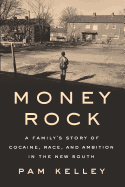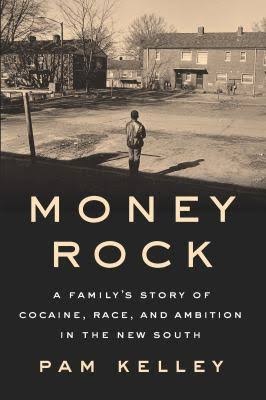
Charlotte, N.C., is something of a poster child for the New South. It is the second largest banking center in the U.S., home of the NASCAR Hall of Fame, one of the country's top 10 fastest growing metropolitan centers and is proud to call itself a "world class" city. In her first book, 30-year veteran
Charlotte Observer reporter Pam Kelley emphasizes that beneath this civic boosterism and flashy growth, Charlotte still has an undercurrent of Jim Crow racism and de facto segregation. An in-depth piece of reportorial investigation and narrative storytelling,
Money Rock illustrates this larger socio-economic environment through the story of one African American man's family across four generations.
Belton Lamont Platt grew up hard in Charlotte's projects. By the time he was 22, he was a primo cocaine dealer and the father of six children by five different women. With a taste for gaudy jewelry and Mercedes coupes, Money Rock (a twist on the earlier nickname Monty Rock during his teens as a deejay) confronted rival dealer Big Lou Samuels in 1985. The resulting chaotic shootout bought him a 35-year prison sentence. A gung-ho rookie journalist, Kelley went to the prison for what she hoped would be an inside peek at Money's world. He stiff-armed her questions with a jailhouse "I'm innocent" monologue, and she forgot about him--until 2011 when a lyric from Jay-Z's "Decoded" made her wonder "What happened to Money Rock?" She found him preaching at his Rock Ministries Church International in Conway, S.C.
Kelley knows a good story when she sees one--and Money Rock is a hell of a story. Like a New South version of The Wire, it leads her back to Platt's birth as the third child of young Carrie Platt. The daughter of hardworking, churchgoing parents, she left home at 17, a self-described "hot-in-the-pants fast-ass girl," and married Alphonso Platt--a hard-drinking, philandering, abusive husband. She went through nonstop pregnancies resulting in four miscarriages and five kids before a divorce and a hysterectomy put an end to that.
After the appeal of his shootout conviction, Money got his sentence cut to one year (time served) and went back to slinging blow. He was busted again in 1990, and a jury convicted him in four hours; Judge Robert "Maximum Bob" Potter piled on with a sentence of 24 years. While serving this second time, Money found Jesus, as so many prisoners claim to, married a woman he met through jailhouse visits, and watched his children slide into crime and premature deaths. When he got out, he and his wife moved to Conway, and this time Money's conversion took. He's still talking the Lord's talk at Rock Ministries.
With solid journalism, dogged research, perceptive observation, colorful interviews and memorable characters,
Money Rock tells a memorable and timely story. Behind the glam of so many U.S. growth cities, a persistent economic and racial divide produces generations of broken families scrambling for a way out--any way out. --
Bruce Jacobs, founding partner,
Watermark Books & Cafe, Wichita, Kan.
Shelf Talker: Veteran reporter Pam Kelley digs into a story of a convicted Charlotte drug dealer and uncovers a family history of struggle to escape the grip of racism and poverty.
 "My key goals are to work with ABA to help identify and advocate for viable, financially sustainable, non-traditional or alternative bookstore business models; to embrace different/new technologies to strengthen our industry; and to help identify, recruit, and support a more diverse membership, while determining what we can do as a trade organization to better serve and advocate for stores with mission-based models."
"My key goals are to work with ABA to help identify and advocate for viable, financially sustainable, non-traditional or alternative bookstore business models; to embrace different/new technologies to strengthen our industry; and to help identify, recruit, and support a more diverse membership, while determining what we can do as a trade organization to better serve and advocate for stores with mission-based models."









 Friends of the
Friends of the 
 This year's CEO Talk at the Frankfurt Book Fair will feature John Sargent, CEO of Macmillan. The talk will focus, the fair said, on "changing consumer habits and new international media competition around storytelling."
This year's CEO Talk at the Frankfurt Book Fair will feature John Sargent, CEO of Macmillan. The talk will focus, the fair said, on "changing consumer habits and new international media competition around storytelling."
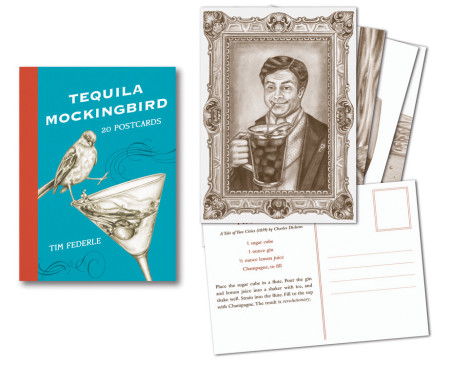 RP Studio plans to publish 25-30 new titles a year. Running Press senior editor Shannon Connors Fabricant will oversee the program, which will include brands and licenses from the Running Press and Black Dog & Leventhal lists and original productions. Formats will include journals, notebooks, notecards, undated planners, undated desktop calendars, postcard books, sticky notes, inspirational wall art, and coaster books.
RP Studio plans to publish 25-30 new titles a year. Running Press senior editor Shannon Connors Fabricant will oversee the program, which will include brands and licenses from the Running Press and Black Dog & Leventhal lists and original productions. Formats will include journals, notebooks, notecards, undated planners, undated desktop calendars, postcard books, sticky notes, inspirational wall art, and coaster books. Readers have continued to make nominations and vote on possible new Barnes & Noble CEOs with book world experience. Although Heidi Fairchild, sales & inventory manager at the Alpharetta, Ga., B&N, continues to lead the voting, other B&N employees are being nominated. It's a testament to the amount of talent in the company and the following that so many individual booksellers have.
Readers have continued to make nominations and vote on possible new Barnes & Noble CEOs with book world experience. Although Heidi Fairchild, sales & inventory manager at the Alpharetta, Ga., B&N, continues to lead the voting, other B&N employees are being nominated. It's a testament to the amount of talent in the company and the following that so many individual booksellers have.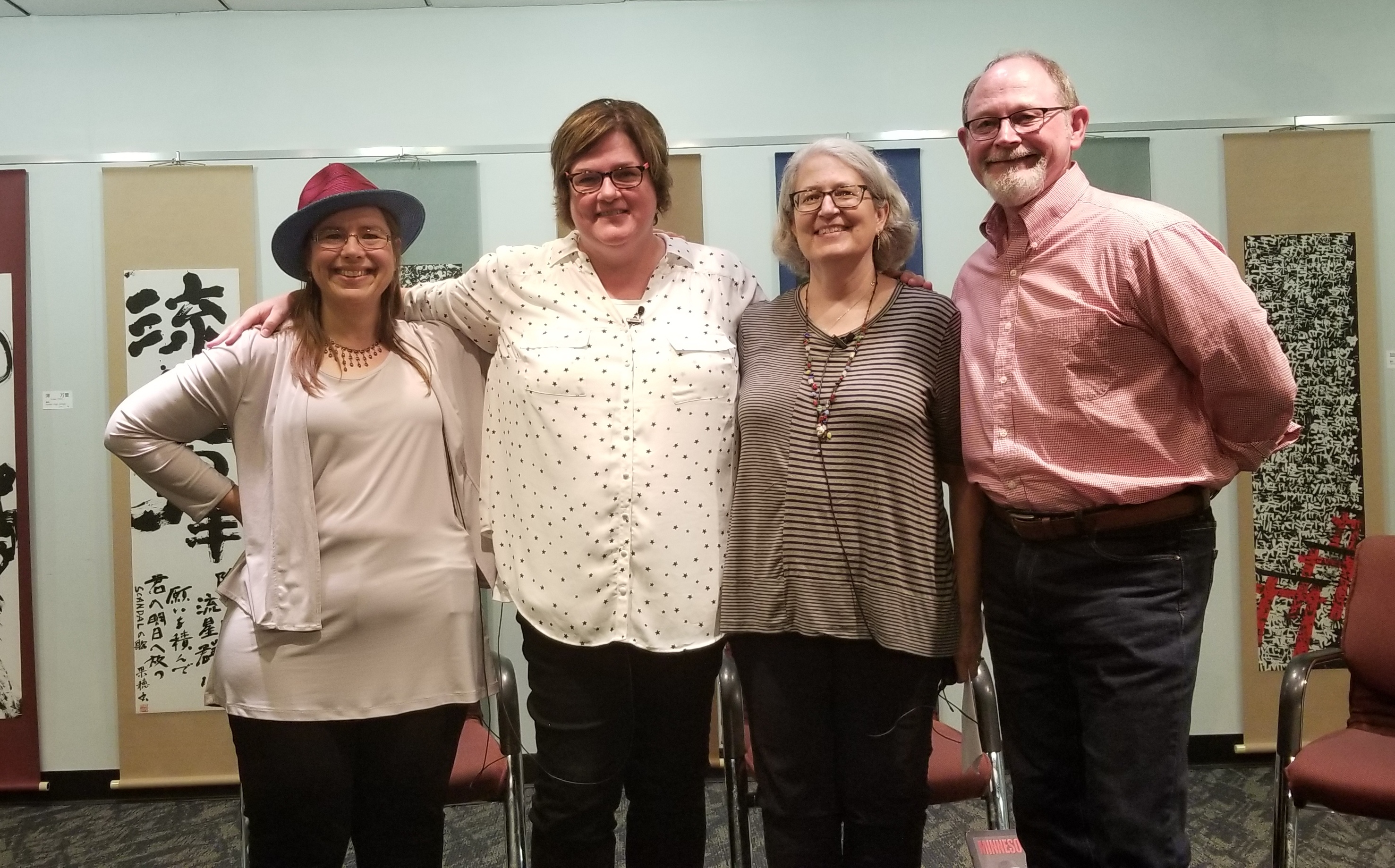 Mystery authors and fans said goodbye to one of their favorite independent bookstores,
Mystery authors and fans said goodbye to one of their favorite independent bookstores, 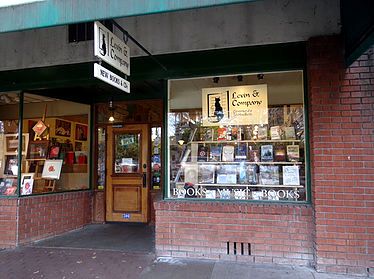 Over the course of its 27-year history,
Over the course of its 27-year history,  With tongue planted firmly in cheek, the
With tongue planted firmly in cheek, the 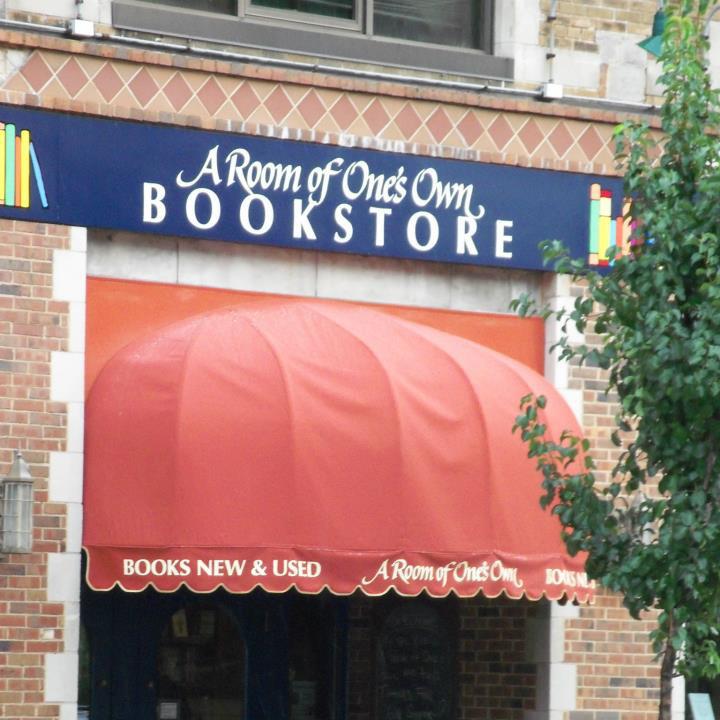 Jes Lukes and Gretchen Treu, the new co-owners of
Jes Lukes and Gretchen Treu, the new co-owners of  Unstinky
Unstinky Charlotte, N.C., is something of a poster child for the New South. It is the second largest banking center in the U.S., home of the NASCAR Hall of Fame, one of the country's top 10 fastest growing metropolitan centers and is proud to call itself a "world class" city. In her first book, 30-year veteran Charlotte Observer reporter Pam Kelley emphasizes that beneath this civic boosterism and flashy growth, Charlotte still has an undercurrent of Jim Crow racism and de facto segregation. An in-depth piece of reportorial investigation and narrative storytelling, Money Rock illustrates this larger socio-economic environment through the story of one African American man's family across four generations.
Charlotte, N.C., is something of a poster child for the New South. It is the second largest banking center in the U.S., home of the NASCAR Hall of Fame, one of the country's top 10 fastest growing metropolitan centers and is proud to call itself a "world class" city. In her first book, 30-year veteran Charlotte Observer reporter Pam Kelley emphasizes that beneath this civic boosterism and flashy growth, Charlotte still has an undercurrent of Jim Crow racism and de facto segregation. An in-depth piece of reportorial investigation and narrative storytelling, Money Rock illustrates this larger socio-economic environment through the story of one African American man's family across four generations.